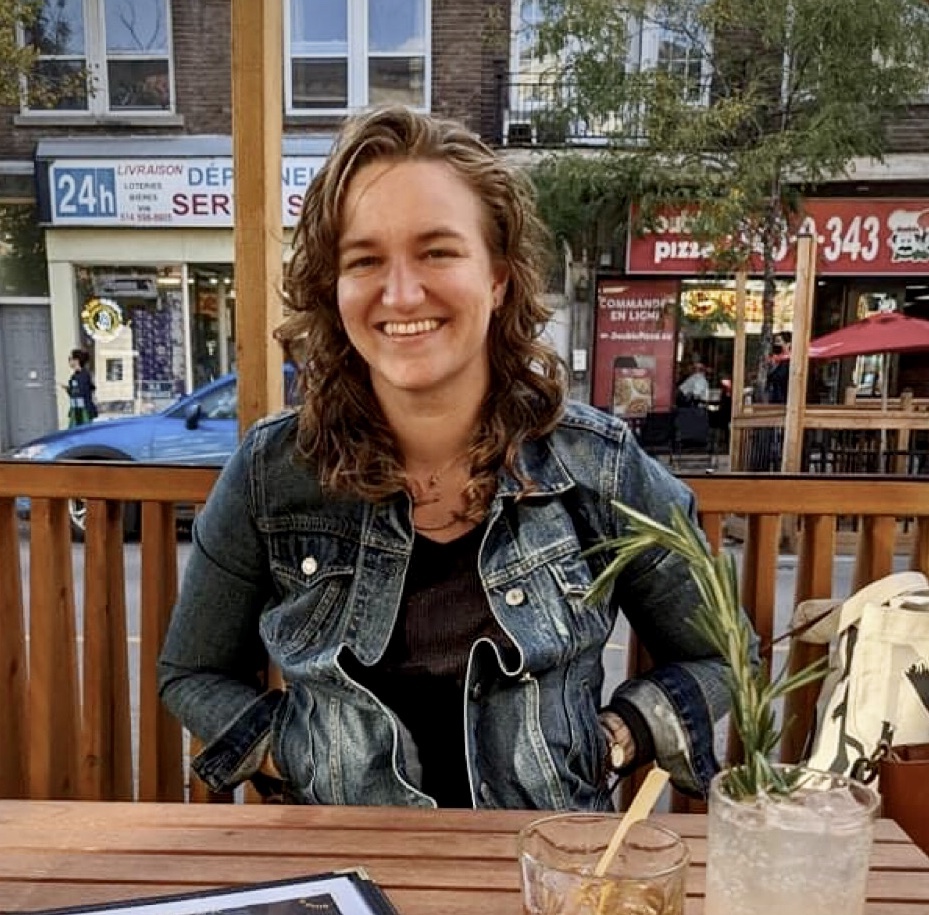
Caitlin Schneider
Caitlin did her Ph.D in the Mandl lab studying the link between immune cell migration and T cell effector differentiation. She was exploring the role of cell migration in inflammasome activation and its impact on the host response to infection. As a side project, she has traveled to southern China to sample blood from wild bats to determine gene expression profiles of bat immune cells in response to innate immune receptor ligands. In her spare time she enjoys drinking Old Fashioneds and amateur cat photography, often simultaneously.
Ph.D, Microbiology & Immunology, McGill University, Canada
M.Sc., Neurodevelopmental biology, Smith College, USA
B.A., Neuroscience, Wellesley College, USA
Awards
2020-2021 F.C. Harrison Fellowship
2020 Meetings d'Immunologie Montreal 'People's Choice' Oral Presentation Award
2019-2020 Samuel L. Lupovitch Fellowship
2019-2020 Schnabel Memorial Graduate Award
2019 Wares Family Graduate Travel Award
2019 Meetings d'Immunologie Montreal Abstract Award
2019 Graduate Excellence Fellowship
2019 F.C. Harrison Fellowship
2019 Graduate Research Day 1st Place Oral Presentation
2018 Tuition Assistance Fellowship
2018 Max E. Binz Faculty of Medicine Studentship
2017 Differential Fee Waiver for International Students
2017 Recruitment Fellowship
2017 Max E. Binz Faculty of Medicine Studentship
2017 Graduate Mobility Award for field work in China
2017 Canadian Society for Immunology Annual Meeting 2nd Place Poster Award
2016 McGill University Graduate Excellence Fellowship
2016 Meetings d'Immunologie Montreal Best Trainee Talk
2015 Society for Developmental Biology Travel Award
2014-2015 Wilens/Santasiero Fellowship in the Biological Sciences
2013-2015 Smith College Graduate Student Fellowship
Publications
Rogers, D., Aditi, S., Wang, H., van Beek, J.J.P., Rademaker, T.J., Artusa, P., Schneider, C., Shen, C., Wong, D.C., Lebel, M., Condotta, S.A., Richer, M.J., Martins, A.J., Tsang, J.S., Barreiro, L., Francois, P., Langlai, D., Melichar, H.J., Textor, J., Mandl, J.N. (2021) "Pre-existing chromatin accessibility and gene expression differences among naïve CD4+ T cells influence effector potential." Cell Reports 30;37(9).
Schnabl, J., Litz, M.P.H., Schneider, C., Penkoff-Lidbeck, N., Bashiruddin, S., Schwartz, M.S., Alligood, K., and Barresi, M.J. "Characterizing the diverse cells that associate with the developing commissures of the zebrafish forebrain." Developmental Neurobiology, doi: 10.1002/dneu.22801 (online ahead of print).
Schneider, C., Shen, C., Gopal, A.A., Douglas, T., Forestell, B., Kauffman, K.D., Rogers, D., Artusa, P., Zhang, Q., Jing, H., Freeman, A.F., Barber, D.L., King, I.L., Saleh, M., Wiseman, P.W., Su, H.C., Mandl, J.N. (2020) "Migration-induced cell shattering due to DOCK8-deficiency causes a type-2 biased helper T cell response." Nature Immunology 21:1528-1539.
Johnson K., Barragan J., Bashiruddin S., Smith C.J., Tyrrell C., Parsons M.J., Doris R., Kucenas S., Downes G.B., Velez C.M., Schneider C., Sakai C., Pathak N., Anderson K., Stein R., Devoto S.H., Mumm J.S., Barresi M.J. (2016) "Gfap-positive radial glial cells are an essential progenitor population for later-born neurons and glia in the zebrafish spinal cord." Glia 64(7):1170-1189
